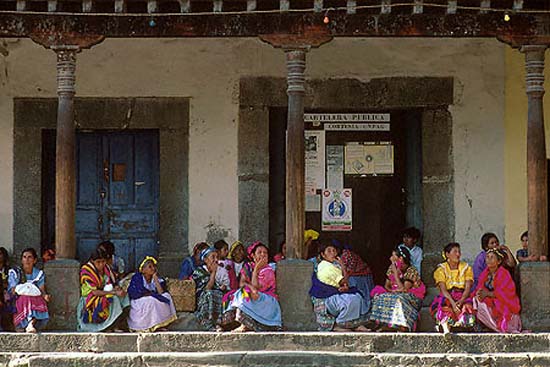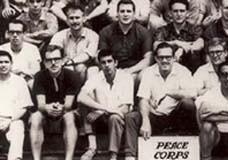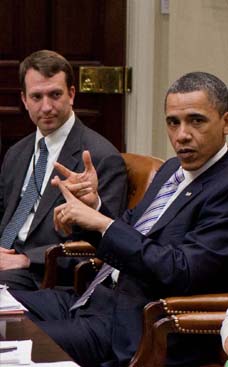
"Many of the rules designed to make PCVs safer are either ineffectual or counterproductive. Is there risk in joining the Peace Corps? Absolutely. But people are also at risk when they drive to work, cross the street, go skiing and pass through Manhattan's Riverside Park late at night. Bad things happen. Female volunteers are at greater risk than men for obvious reasons, but that does not mean that Peace Corps Safety and Security policies are always are putting PCVs in imminent danger. Many times these rules are just annoying hoops that PCVs jump through until they start to ignore them. However, a few "Safety and Security" policies are counterproductive."
Guatemala RPCV Taylor Dibbert writes: The claims that the Peace Corps is not doing enough to keep volunteers safe are, for the most part, baseless
The Truth about the Peace Corps
September 29, 2011 by Taylor Dibbert
As the Peace Corps turns fifty, now is an auspicious time to discuss Peace Corps reform. With annual expenses of less than $500 million, the organization costs little when considered in the broader budgetary debate on Capitol Hill. Over the past ten years, two disparate narratives have encompassed most talk surrounding the organization.
The first has to do with Peace Corps volunteer (PCV) safety. The second issue has to do with inadequate funding.
[Excerpt]
First, the claims that the Peace Corps is not doing enough to keep volunteers safe are, for the most part, baseless. Many of the rules designed to make PCVs safer are either ineffectual or counterproductive.
Is there risk in joining the Peace Corps? Absolutely. But people are also at risk when they drive to work, cross the street, go skiing and pass through Manhattan's Riverside Park late at night. Bad things happen. Female volunteers are at greater risk than men for obvious reasons, but that does not mean that Peace Corps Safety and Security policies are always are putting PCVs in imminent danger. Many times these rules are just annoying hoops that PCVs jump through until they start to ignore them.
However, a few "Safety and Security" policies are counterproductive. For example, an official rule of Peace Corps Guatemala states that volunteers are not allowed to leave their site more than one weekend per month for recreational purposes. When a volunteer does leave, that person is "required" to call the Peace Corps office and leave a message stating where they will be and how they can be reached. The thinking is that, in case of an emergency (like a natural disaster) administrators will know where all their volunteers are.
This is a terrible idea. Volunteers invariably fail to report their travel plans because they do not want to be reprimanded. Administrators must know this; it is an obvious point. Most Peace Corps volunteers are adventurous, worldly people in their late-twenties and most live in rural communities. Consequently, these folks will want to "get out of site" a bit more frequently than the Peace Corps prescribes. So PCVs usually do not call out of site. Many times, administrators do not know where volunteers are. And round and round we go.
Many people have argued for greater funding for the Peace Corps. However, more money is not the best way to go about improving the organization.
The most frustrating aspect of my Peace Corps experience was that administrators did not seem to care very much about volunteer achievement. While achievement was certainly encouraged, many Peace Corps administrators were happier to see quiet volunteers, staying out of trouble. In fact, I know people who did (literally) almost nothing in two years of service. If readers do not believe this assertion, I would encourage them to ask around. Trust me. It happens. Being a Peace Corps volunteer is not easy and working with counterpart NGOs can be frustrating. Nevertheless, there is always something that can be done. After all, these are developing countries.
The Peace Corps has no accountability mechanism. Rather, administrators seem to just look the other way instead of dealing with volunteer laziness, complacency or frustration. There is plenty of all three; I promise. While many smart people, including some US Congressmen, have good intentions, they are wrong on this issue.
Bolstering accountability must come first, not additional funding or superficial safety regulations.
Most former volunteers know the truth. The Peace Corps is riddled with inefficiencies. The application process is even worse. This bureaucracy needs to be streamlined. PCVs must be held more accountable in terms of productivity. I do not pretend to have all the answers, but it is important that people start asking the appropriate questions.
I do love the Peace Corps. It is because I care so much, that I raise these issues. In my lifetime, I am not sure that the US role in world affairs has ever been more controversial. Budgetary constraints and overextension abroad are huge problems.
Guess what? The mission of the Peace Corps is more relevant now that ever. The Peace Corps is soft power on steroids. There is no better way for the US to promote its interests abroad, but the Peace Corps could be so much better than it currently is.
Since 1961, nearly 200,000 volunteers have served. Reform will be a slow, organic process. Former volunteers must demand meaningful change.
Answering the call to serve is not an ephemeral moment, but a lifestyle choice. Let the debate begin.
Gerald Cox 2 comments collapsed Collapse Expand
I don't know what Mr. Dibbert was doing in the Peace Corps but I can say that I, and the more than 100 other Peace Corps teachers with whom I served in Kenya (1983 to 1984), worked very hard and in very difficult conditions. We were in the classroom every day teaching large numbers of students and making do with very few resources. Moreover, many of us did this while fighting long periods of illness, isolation, and loneliness. I can't imagine what sort of efficiency improvements Mr. Dibbert would try to bring to bear on the Peace Corps, but I can tell you that, with few exceptions, volunteers are highly motivated and are doing the best that can be done in difficult circumstances.
John Lyman, John Lyman is the Editor-in-Chief of the Journal of Foreign Relations. John started the Journal of Foreign Relations in January of 2011 after leaving his position with Foreign Policy Digest where he spent two years writing articles before finally becoming their Administrative Editor. After helping launch their new and improved website John began the Journal of Foreign Relations. John completed a Master of Arts in European Studies in 2008 from the University in Amsterdam, graduating Cum Laude. In 2010 he completed a Bachelor of Arts in Homeland Security and Emergency Preparedness from Virginia Commonwealth University. He wrote his thesis on Dutch water management and how their lessons could be applied to the United States in the face of global climate change. John completed a Bachelor of Arts in Political Science also from Virginia Commonwealth University in 2006 before moving to the Netherlands to complete his M.A. 1 comment collapsed Collapse Expand
Thank you for the feedback and although its an Op-Ed my Father who was a volunteer in 1962 will be submitting a piece on his experiences.
















